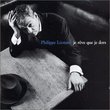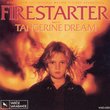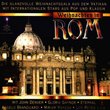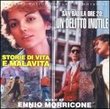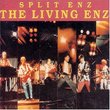| All Artists: John Williams, London Symphony Orchestra Title: Dracula: Original Motion Picture Soundtrack Members Wishing: 3 Total Copies: 0 Label: Varese Sarabande Original Release Date: 2/20/1990 Re-Release Date: 2/2/1990 Album Type: Soundtrack Genres: Pop, Soundtracks Style: Number of Discs: 1 SwapaCD Credits: 1 UPCs: 030206525021, 030206525045 |
Search - John Williams, London Symphony Orchestra :: Dracula: Original Motion Picture Soundtrack
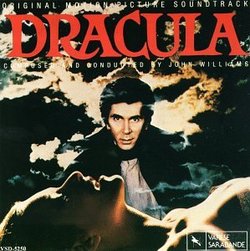 | John Williams, London Symphony Orchestra Dracula: Original Motion Picture Soundtrack Genres: Pop, Soundtracks
|
Larger Image |
CD DetailsSimilar CDs
|
CD ReviewsHaunting Thomas C. Nagy | Ebensburg, PA USA | 05/09/2001 (5 out of 5 stars) "John Williams is known for such hummable Hollywood tunes as "Superman", "Star Wars", "Jaws", "Raiders of the Lost Ark" and "Schindler's List." This score, however, will not have you humming, but music afficianados will see the brilliance of this man, John Williams. The score is dark, romantic and shows influences of Samuel Barber, Arnold Schoenberg, Serge Prokofiev and Gustav Mahler. It is riddled with lush orchestrations, beautiful solo lines, and dramatic climaxes. The performances are stellar. Truly a score that you can listen to for its own musical merit!" Chilling, But Beautiful Luis M. Ramos | Caracas, Venezuela | 11/17/2000 (5 out of 5 stars) "Bravo for a man who apparently wasn't in touch with vampire flicks. Or that was what the booklet said about John Williams, when he was commisioned to compose the music for "Dracula". Yet for a man who knew nothing about vampires, Williams' score ranks as one of his best.The theme for Dracula is gothic, thrilling, and romantic at the same time. All you have to do is to listen to 'Main Title And Storm Sequence', 'Night Journeys', and 'The Love Scene', and discover how Williams creates different moods for a character who is considered a monster.For action cues, there is nothing like 'To Scarborough', which has a technique Williams is an expert on: "scherzo". This piece is propulsive, and exciting. Also the 'Storm Sequence' is outstanding, with quite some frightening notes that keep you wide awake, especially if you listen to it at night with the lights off. And let's not forget 'Dracula's Death', a track that begins quietly, and finishes rousingly, with an operatic eloquence that only Williams can create.It's too bad that the movie, for which this music was written, wasn't well-received. But there is no question about the excellence of this CD. I insist that John Williams wrote an excellent piece of music; perhaps one of his great classics, supported by an outstanding performance by the London Symphony Orchestra. If you haven't seen the movie, don't hesitate in buying this soundtrack. Believe me, it's worth it." Another Case of a Score that's Better Than Its Film Steve Miller | 09/18/2000 (5 out of 5 stars) "The soundtrack for the 1979 'Dracula' film is among one of John Williams' best works to date, rivaling 'The Empire Strikes Back.' Although written for a somewhat weak adaptation of Bram Stoker's novel, the music Williams delivered is exciting and vibrant. It even features the spirit of the gothic sensibility that the film nearly completely lacked. Any fan of his music should own a copy of this disk, and I even feel it's a worthy addition to the library of anyone who apprecites good orchestral work. There isn't a dull musical moment anywhere.Tension and romantic sensibility are mingled thorughout the music on this disk. Every selection included is a high mark in the annals of film music recordings.High points are "Main Title & Storm Sequence" (which features the score's main theme and a series of neat variations upon it), "To Scarborough" (which may be one of Williams' best compositions on a technical level), "Night Journeys" (which is a series of elaborations on the main theme that include some nice choral touches), "For Mina" (one of the few calm pieces on the disk, it features a melancholy horn solo and some touching string work), and the "End Titles" (a subdued, yet still with a threatning undercurrent, presentation of the film's main theme).Heck, even the tracks that are primarily sections of utilitarian music (such as "The Night Visitor" and "The Bat Attack") feature sections that makes one sit up and take notice. "The Love Scene" is also noteworthy, if only for its straight-forward presentation of the score's main theme and for being the only noteworthy part of one of the film's most excrutiating sequences... the love scene after which the piece is named."
|

 Track Listings (11) - Disc #1
Track Listings (11) - Disc #1